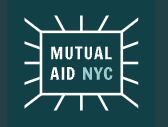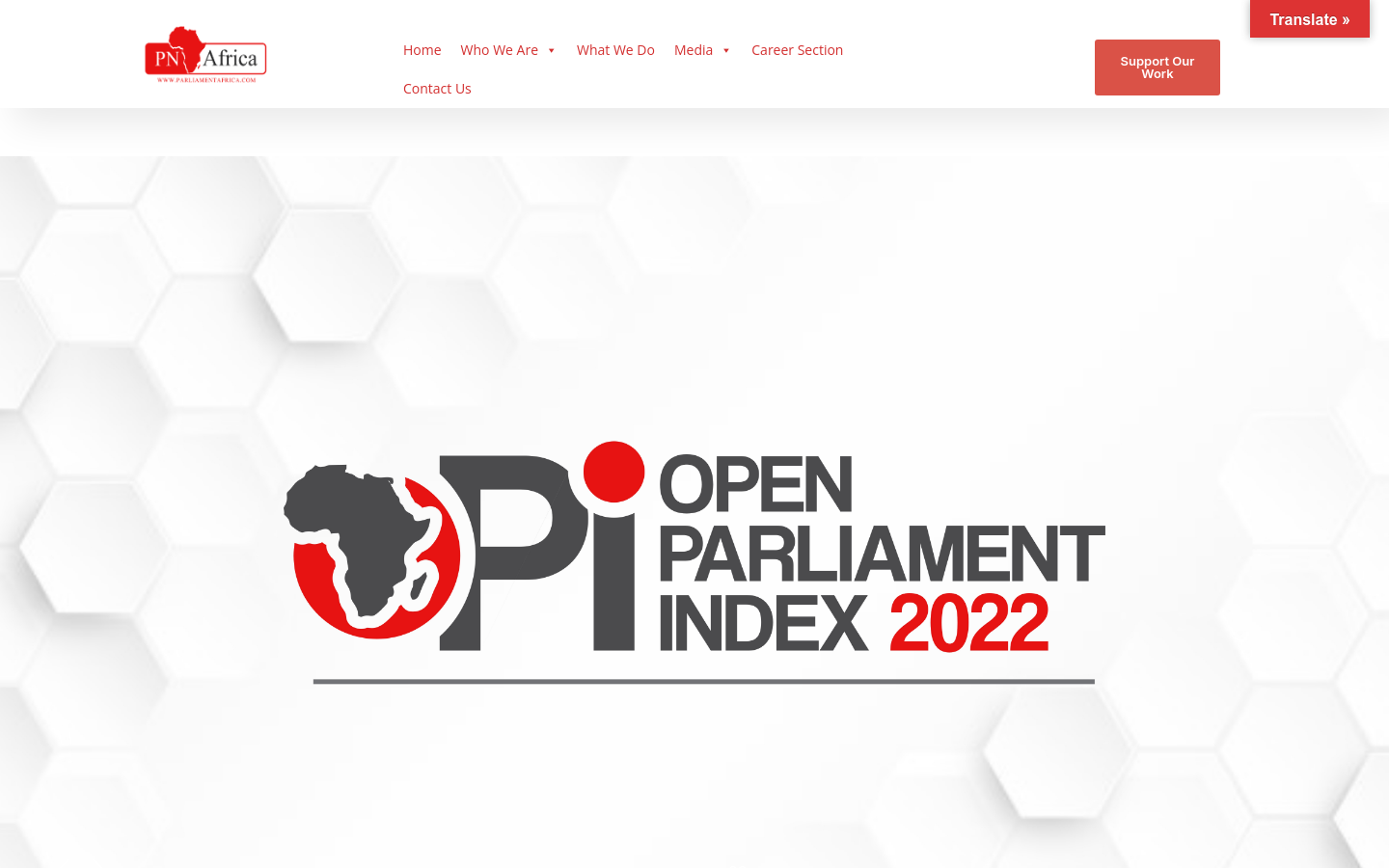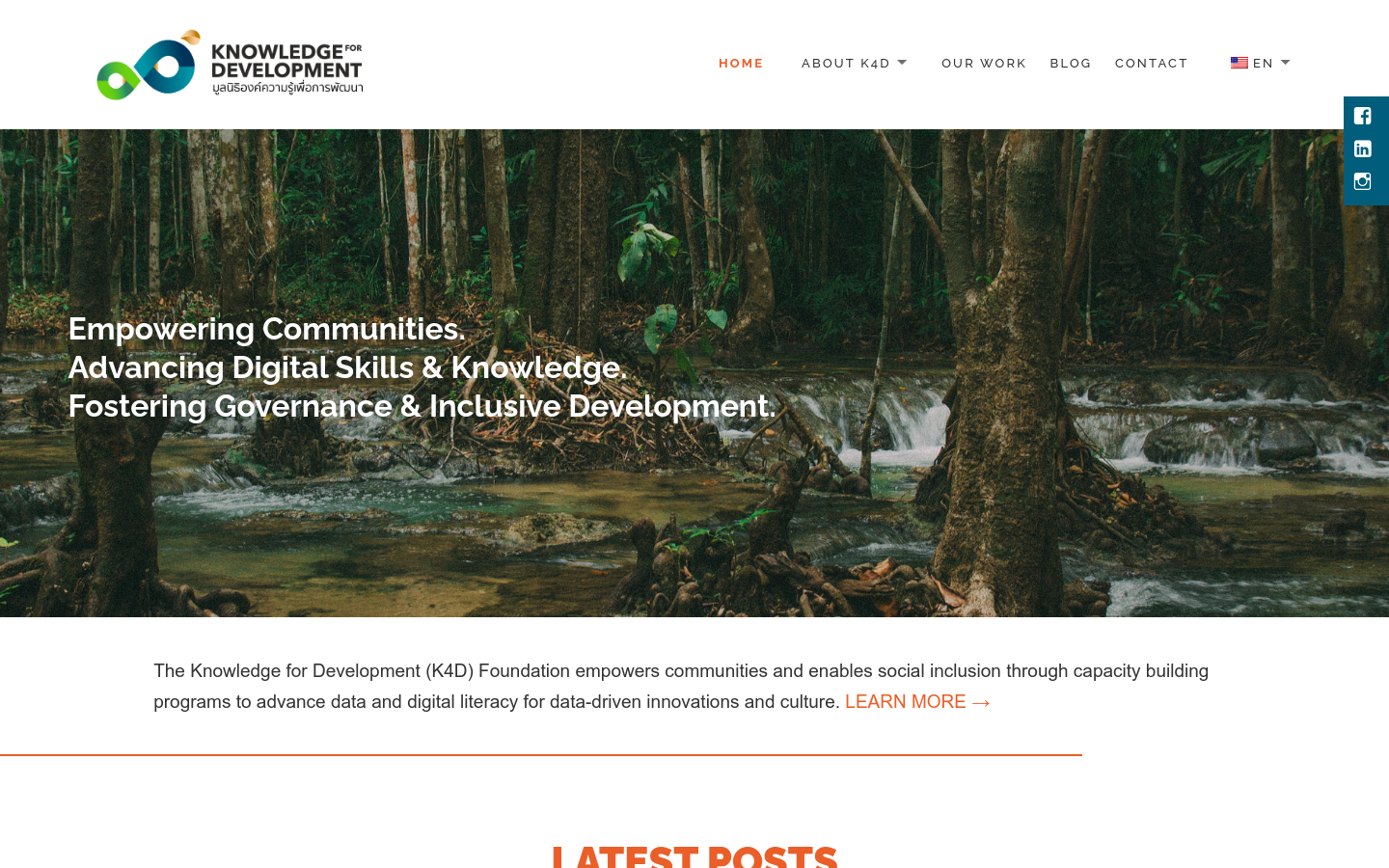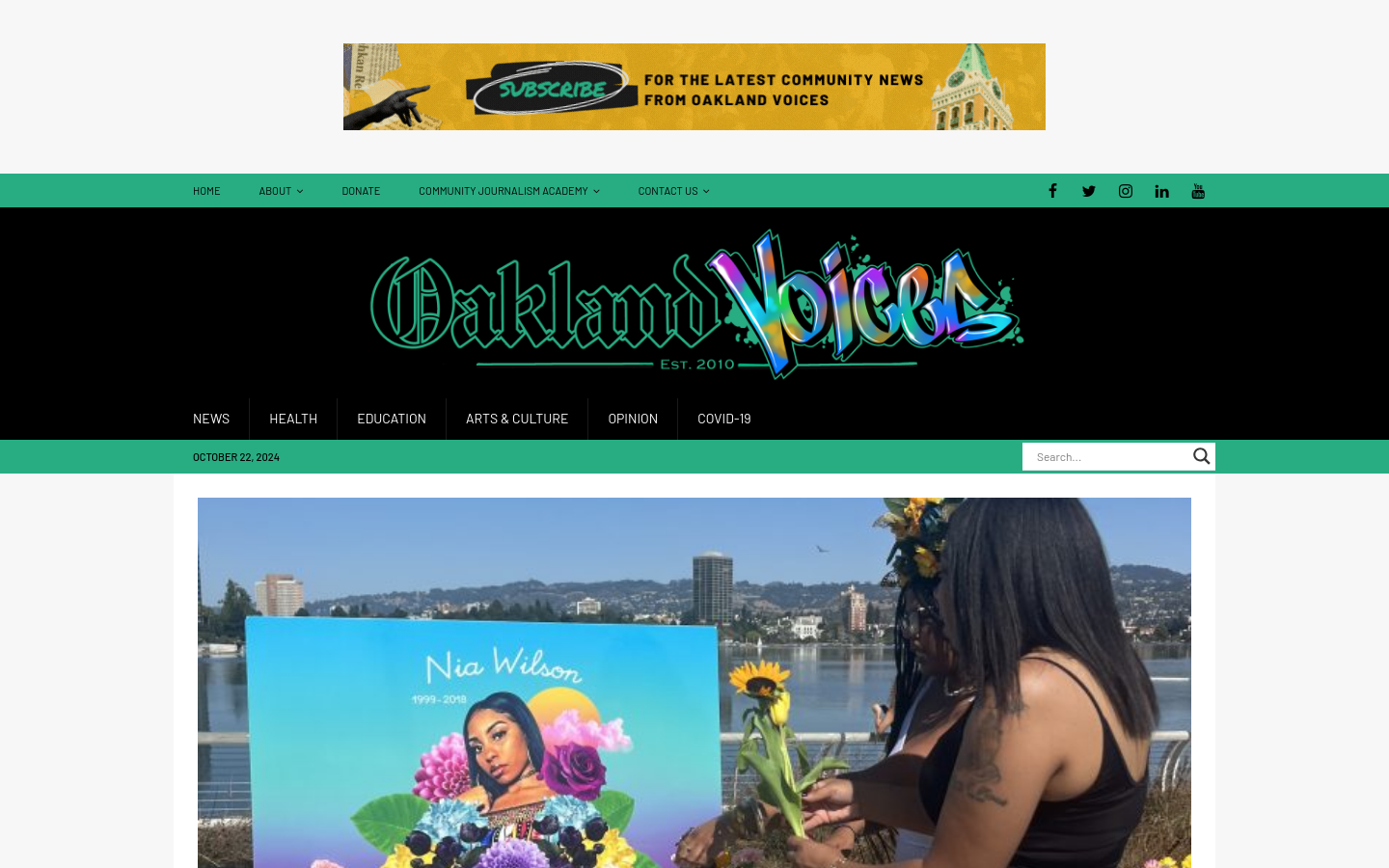Civic Tech Field Guide
Sharing knowledge and productively growing the fieldSearch Results - city (1027)
Showing 1027 Results

Join the growing No Tech for Apartheid movement and demand that Microsoft live up to its own purported ethical values—by ending its direct and indirect complicity in Israeli apartheid and genocide.

The MENA Observatory on Responsible AI is an interdisciplinary platform connecting policy-oriented researchers and innovators, aimed at fostering collaboration and building capacity for responsible data and AI practices.

American Governance Institute
Washington, DCThe American Governance Institute develops ideas and educates policymakers on innovative approaches to strengthening American democracy, state capacity, and federal governance.

Public & Collab Services Course
The New School, East 13th Street, New York, NY, USAA core course for the Graduate Minor in Civic Service Design at Parsons School of Design at The New School, taught by Lara Penin

GitLab Foundation Learning for Action Fund
United States of America (the)The GitLab Foundation launched the Learning for Action Fund in June 2024 to alleviate these problems and increase our grantees’ capacity to deepen their impact measurement, learning, and feedback work.

Humankind
Rotterdam, The NetherlandsAgency For Urban Change

End Police Surveillance
Chicago, ILShotSpotter creates thousands of unfounded police deployments, fuels unconstitutional stop-and-frisk, and can lead to false arrests.

The report explores the potential for social justice organizations in the Majority World to transition to alternative social media platforms, such as Mastodon and BlueSky, as a way to address the concerns and limitations of mainstream platforms like Facebook and Twitter

Renovate the Public Hearing
Burnaby, CanadaRenovate the Public Hearing is an initiative created by the Centre for Dialogue to act as a convener and catalyst to pilot changes to the provincial local government land-use public hearing requirements as a means to enhance social justice, community-building and strengthen democratic culture.

Hey Neighbour Collective
Burnaby, CanadaHey Neighbour Collective (HNC) is a collective impact project that brings together housing providers, researchers, local and regional governments, housing associations and health authorities to experiment with and learn about ways of effectively building community, social connectedness and resilience in B.C.’s fast-growing vertical communities.


How can we ensure that democratic capacity can keep pace with AI advances? What are achievable positive visions for a world being transformed by technology? By Aviv Ovadya

KICTANet is a multi-stakeholder think tank in Kenya that serves as a catalyst for ICT sector reforms through policy advocacy, capacity building, research, and stakeholder engagement.

Acessibilidade Digital Challenge
Rua de Santa Marta no. 55O Acessibilidade Digital Challenge visa capacitar as equipas técnicas dos municípios portugueses a obterem a Declaração de Acessibilidade para os seus sítios web

Digital Trustees
United Kingdom of Great Britain and Northern Ireland (the)We're aiming to get digital on the agenda of every charity board in the UK.

Connect (GOV.UK)
10 Downing Streeti.AI are using AI to match capacity to demand in the Grid connections queue
Congestion Pricing Tracker
Brown UniversityCurious whether Congestion Pricing is having an impact on commutes in NYC? Take a look to compare traffic data before and after Congestion Pricing

The E-Government Development Index presents the state of E-Government Development of the United Nations Member States.

Fondation Botnar
Basel, SwitzerlandFondation Botnar works with and for young people towards a world that fulfils their rights and supports their wellbeing.

UNDP Panama Accelerator Lab
Panama City, PanamaPanama’s Accelerator Lab is working to understand how strengthening solid waste management practices in rural municipalities can help create pathways to optimize national recycling strategies and work towards a circular economy.

OpenCouncil
Greece (Ellas, Ellada)Demystify local government and enable citizen participation

Mutual Aid NYC
New York City, NY, USAA network of neighborhood groups and network builders organizing to provide aid and support to New Yorkers.

Laboratorio de Ciudad
Asunción, ParaguayDescubrimos a grupos ciudadanos comprometidos con sus comunidades

UrbanistAI
EuropeThe platform to reimagine the future of our cities.

Local Infrastructure Hub
United States of America (the)The Local Infrastructure Hub is a national program designed to connect cities and towns with the resources and expert advice they need to access federal infrastructure funding in order to drive local progress, improve communities, and deliver results for residents.

CincyInsights
Cincinnati, OhioOur goal is to make government data simple to use, easy to understand, and effortless to access. No data or tech knowledge is required.

More and Better! Diversifying electronic participation mechanisms and improving the online services offered by Portuguese municipalities
Guimarães, PortugalThe 2023 edition of the “IPIC – Portuguese Municipal Councils’ Online Presence Index” series of studies presents the results of the evaluation of Portuguese municipal councils’ websites.

Portugal Digital Fellowship at United Nations University
Guimarães, PortugalThe envisaged participants of this Capacity Building Programme are high-level officials from developing countries.

A collaborative and global capacity development project designed to help address the unique needs of HRDs living in exile.

San José AI Reviews & Inventory
San Jose, California, USAAn AI Inventory is an important transparency mechanism that enables the City of San José to meaningfully communicate the AI systems that it uses to its residents. In January 2023, the DPO began maintaining an AI Inventory in an effort to increase transparency of the technological tools used by the City.

San José Data Usage Protocols & Public Comment initiative
San Jose, California, USAPublic Comment period for emerging place-based tech deployed in San José

Localret
Barcelona, SpainLocalret és el consorci local format per les administracions locals de Catalunya per acompanyar els municipis en la seva transformació digital

Africa Open Parliament Index (OPI)
GE185-7537 BOHYE ROAD (ECOWAS HIGHWAY), NEW ASHONGMAN ESTATE, ACCRA GHANAThe Index will enable civil society to work together with national and regional parliaments to identify systemic challenges to achieving parliamentary openness and to co-create reforms that will strengthen the capacity of parliaments to enhance their openness.

Paper by Joy Aceron, 2019. This paper explains why and how a reform program that opened up spaces for participatory budgeting was ultimately unable to result in pro-citizen power shifts that transformed governance.

DC Compass
Washington, DCDC Compass, launched in March, uses generative AI to answer user questions and create maps from open data sets, ranging from the district’s population to what different trees are planted in the city.

Diagonal Works
United Kingdom of Great Britain and Northern Ireland (the)We strive to support the development of more equitable and inclusive places through our belief in open, collaborative and data informed urbanism.

Waymo partnered with dashcam company Nexar to analyze 500 million miles of driving, including 335 crashes, to create the 'largest ever’ dataset of pedestrian and cyclist injuries

Landlord Mapper
Chicago, ILLandlord database & interactive map to promote property ownership transparency in rental markets

Knowledge for Development
Chiang Mai, ThailandThe Knowledge for Development (K4D) Foundation empowers communities and enables social inclusion through capacity building programs to advance data and digital literacy for data-driven innovations and culture.

SAGA Smart Machinaka Project
Saga, JapanThe SAGA Smart Machinaka Project is a demonstration project that aims to improve the convenience of the city center of Saga City through the use of technologies such as AI and IoT, and to create a city that is easy to live in.

The Austin Common
Austin, TXThe Austin Common makes the city’s democracy more inclusive, representative, and accessible for all by reporting the local news in a way that is empowering, deeply rooted in community, and created in direct service to their audience. It serves Austinites who have been left out of the local democratic system and underserved by news media, primarily young people and non-regular news readers/news avoiders.

The JOLT News Organization
Tumwater, WAThe Journal of Olympia, Lacey & Tumwater (The JOLT) nourishes the civic lives of the residents of Thurston County, Wash., and grows community capacity by publishing accurate, relevant, and entertaining stories that help people become better informed and more involved in local issues, events, and activities.

Black Belt News Network
Selma, ALThe Black Belt News Network believes citizens of the Black Belt––the poorest and most rural region in Alabama––deserve access to the same quality and variety of news and information as their big-city cousins. The Black Belt News Network serves Dallas, Marengo, Perry, Lowndes, and Wilcox counties with a robust digital news site and a range of social media assets, including the area’s only live newscast.

Oakland Voices
Oakland, CAOakland Voices brings together journalists, community leaders, and residents to shift the dominant narrative about Oakland and its people toward a just city where everyone belongs, has a voice, and their stories and experiences are respected.

The Bell
New York, NYThe Bell equips New York City students with the tools to tell impactful stories today and thrive in the media careers of tomorrow by running audio journalism internship programs for public high school students; partnering with adult journalists and newsrooms to extend the reach of its stories and provide valuable mentorship; and collaborating with partners across the city and country to advocate for equitable investment in youth journalism programs.

Dallas Free Press
Dallas, TXDallas Free Press amplifies voices in disinvested Dallas neighborhoods and explores solutions to the city’s systemic inequities by providing fair, equitable media representation and the communication infrastructure they historically lacked, so they can access the civic information they need and pursue next steps to seeking solutions and pushing for change.

Epicenter-NYC
Jackson Heights, NYEpicenter-NYC is an emerging mission-driven and local-first multiplatform journalism organization that seeks to connect and engage New York City communities to one another through arts, culture, and civic education.





